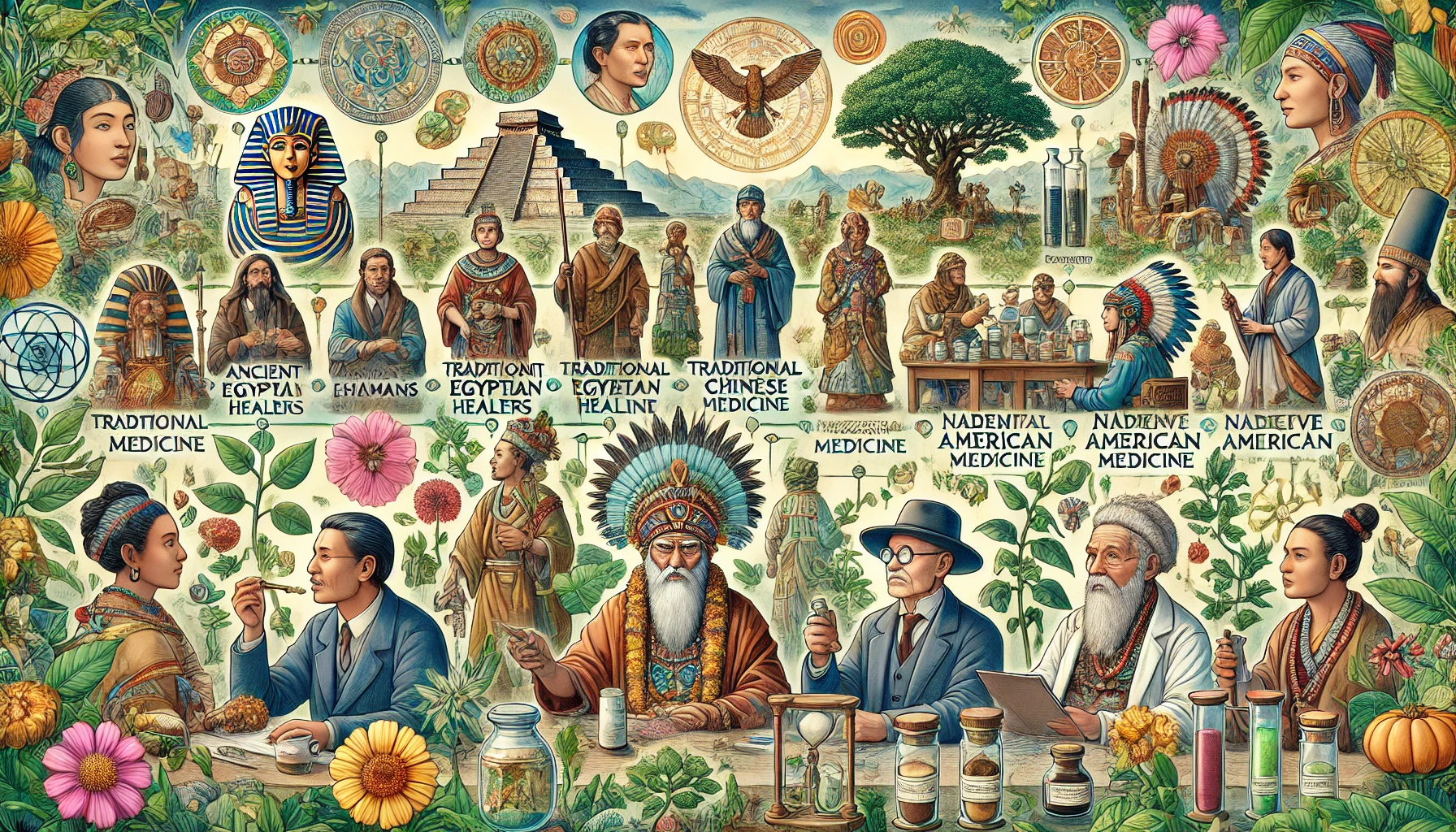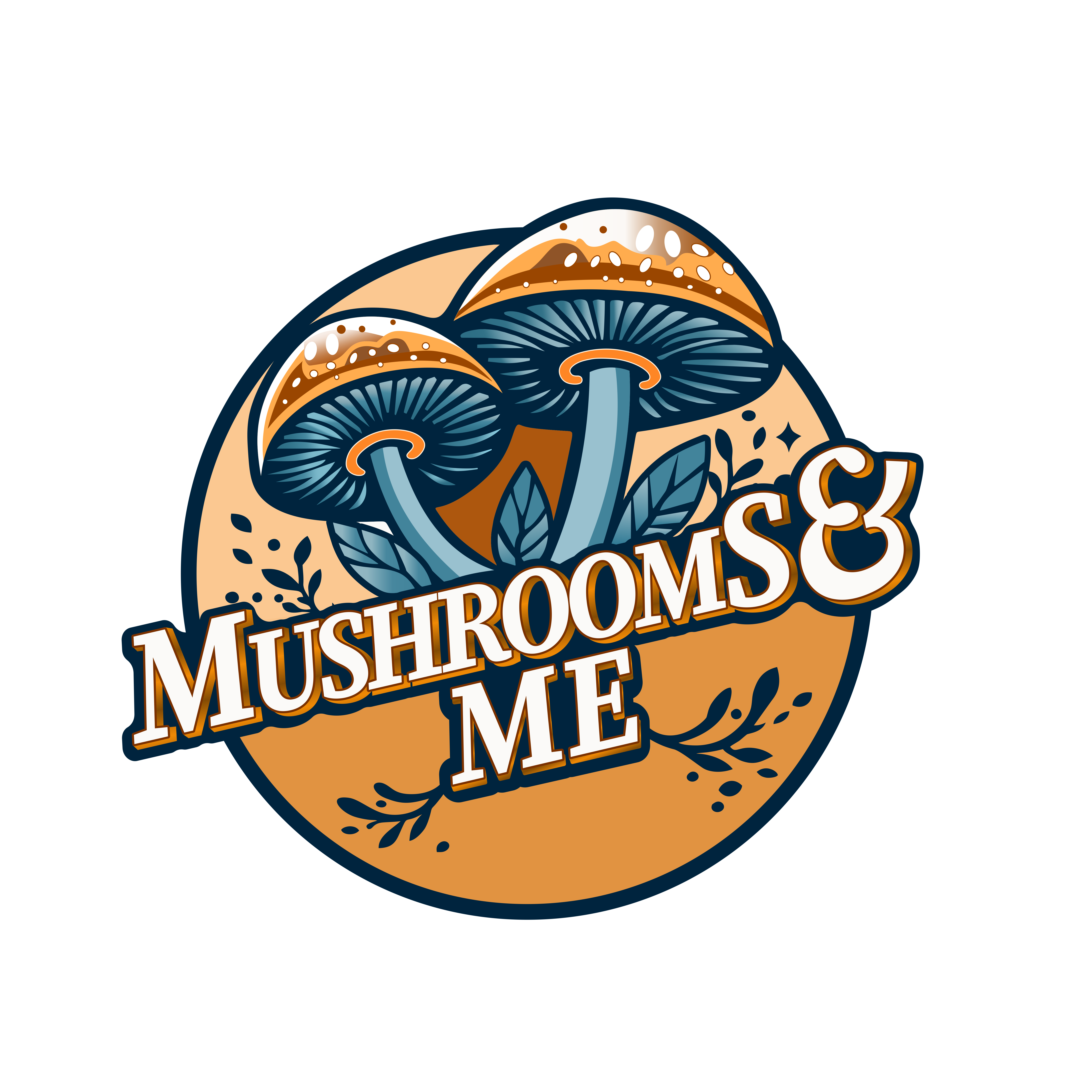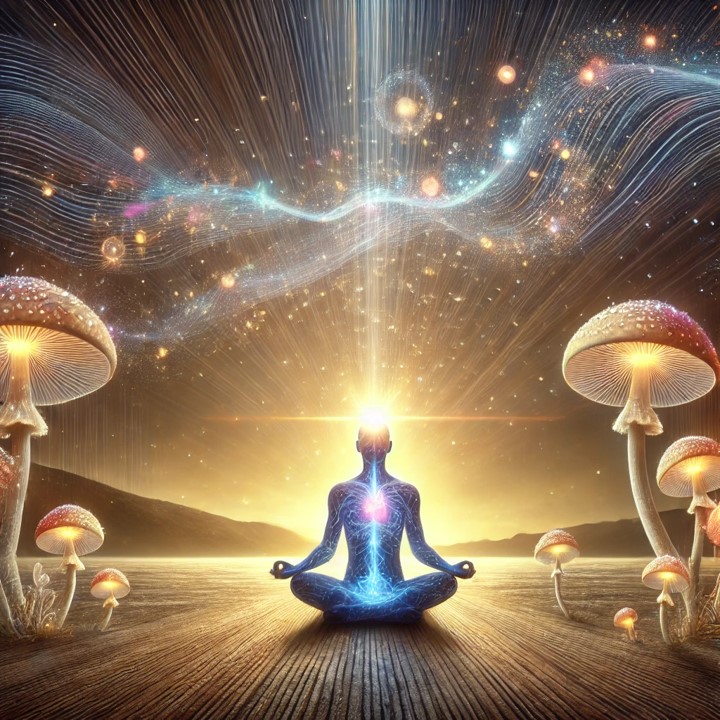 Psychedelic healing is not a new-age fad; it’s a practice steeped in centuries of tradition and cultural significance. Long before the term “psychedelic” even existed, indigenous cultures across the globe were tapping into the power of natural substances to heal the mind and body. Let’s take a trip down memory lane and explore how psychedelic healing has been an integral part of human history and how its resurgence today is reigniting interest in these ancient practices.
Psychedelic healing is not a new-age fad; it’s a practice steeped in centuries of tradition and cultural significance. Long before the term “psychedelic” even existed, indigenous cultures across the globe were tapping into the power of natural substances to heal the mind and body. Let’s take a trip down memory lane and explore how psychedelic healing has been an integral part of human history and how its resurgence today is reigniting interest in these ancient practices.
The Roots of Psychedelic Healing
The use of psychedelics for healing dates back thousands of years. Indigenous tribes in the Americas, Africa, and Asia have long used natural psychedelics in their rituals and ceremonies. These substances, derived from plants and fungi, were considered sacred and were used under the guidance of shamans or spiritual leaders to cure ailments and facilitate mental wellness.
- Mesoamerican Cultures:
- In Mesoamerica, the use of psilocybin mushrooms, often called “magic mushrooms,” was common among the Aztecs, Mayans, and other indigenous peoples. These mushrooms were referred to as “teonanácatl,” meaning “flesh of the gods,” highlighting their significance. Shamans would use them during ceremonies to gain insights and heal the sick.
- Amazonian Traditions:
- Ayahuasca, a potent brew made from the Banisteriopsis caapi vine and the Psychotria viridis leaf, has been used for centuries by indigenous tribes in the Amazon basin. Ayahuasca ceremonies are led by experienced shamans who guide participants through intense visionary journeys aimed at purging negative energies and providing psychological insights.
- Native American Rituals:
- The peyote cactus, containing the psychoactive compound mescaline, has been used for at least 5,500 years by Native American tribes, particularly the Huichol, Navajo, and Comanche. The peyote ceremony is a key element of the Native American Church and is used for mental healing and seeking guidance.
- African Traditions:
- In West Africa, the Bwiti religion practices the use of iboga, a powerful psychedelic derived from the Tabernanthe iboga plant. Iboga ceremonies are intense and often last several days, aiming to heal physical ailments and provide psychological insights.
Psychedelics in the Modern Era
Fast forward to the mid-20th century, and psychedelics found their way into Western consciousness. The 1960s saw a surge in interest in substances like LSD (lysergic acid diethylamide) and psilocybin, not just for recreational use, but also for their potential to treat mental health disorders such as OCD, addiction, and depression, however, research into psychedelic-assisted therapy largely came to a halt in the 1970s due to a combination of political, social, and scientific factors, such as the significant shift towards pharmacological treatment of mental health conditions.
Despite these setbacks, the promise of psychedelic healing never truly disappeared. In recent years, we’ve witnessed a renaissance in psychedelic research, with scientists and therapists revisiting the potential of these substances to address some of the most pressing mental health issues of our time.
The Healing Power of Psychedelics
Modern research is starting to validate what ancient cultures have known for centuries: psychedelics can be powerful tools for healing. Here are a few ways they are making a difference:
- Treating Depression and Anxiety:
- Studies have shown that psilocybin can produce rapid and sustained improvements in individuals suffering from depression and anxiety, particularly those who have not responded to traditional treatments. By disrupting negative thought patterns and enhancing emotional processing, psilocybin can help individuals gain new perspectives on their lives and struggles.
- PTSD and Trauma:
- MDMA-assisted therapy has shown remarkable promise in treating PTSD. By promoting a state of emotional openness and reducing fear responses, MDMA allows individuals to process traumatic memories more effectively, leading to significant reductions in PTSD symptoms.
- Addiction Recovery:
- Psychedelics like ibogaine and psilocybin are being explored as treatments for addiction. Ibogaine, for instance, has been reported to reduce withdrawal symptoms and cravings in individuals struggling with substance abuse, while psilocybin has been used to help individuals break free from addictions to alcohol and tobacco.
- Neuroplasticity and Brain Health:
- Emerging research suggests that psychedelics may promote neuroplasticity, the brain’s ability to reorganize itself by forming new neural connections. This could explain why some people experience lasting positive changes in their mental health after a psychedelic experience. By creating new pathways, psychedelics may help the brain “reset” and adopt healthier patterns of thinking and behavior.
Embracing the Future of Psychedelic Healing
As we continue to uncover the therapeutic potential of psychedelics, it’s essential to approach their use with respect and care. Legal frameworks are slowly evolving, and more clinical trials are underway to ensure the safe and effective use of these substances. Organizations like MAPS (the Multidisciplinary Association for Psychedelic Studies) are at the forefront of this movement, working tirelessly to bring psychedelic therapies into the mainstream.
In embracing the future of psychedelic healing, we are not just adopting a new treatment paradigm; we are reconnecting with ancient wisdom that has long understood the profound connection between mind and body. As we blend traditional knowledge with modern science, the possibilities for healing and transformation are boundless.
So, the next time you hear about psychedelic therapy, remember that it’s not just a new-age trend. It’s a practice rooted in centuries of human experience, offering a bridge between ancient traditions and modern medicine. The journey of psychedelic healing is one of discovery, connection, and, ultimately, profound healing.


